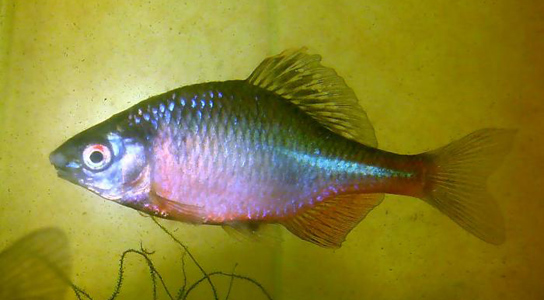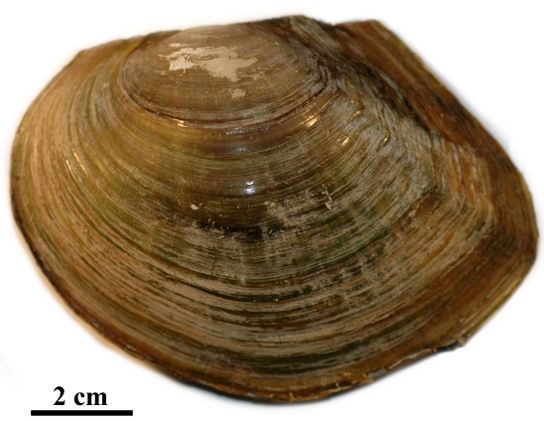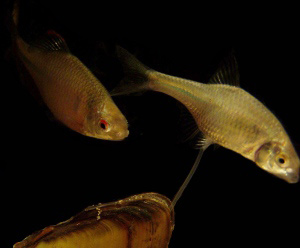
In a new study published today in the journal Biology Letters, researchers have found an invasive species of mussels that has caused a complete ecological role reversal, turning a host into a parasite and vice versa.
The scientists were focused on ecosystems involving the European bitterling (Rhodeus amarus), a small, pale-silver freshwater fish that lays its eggs in the gills of mussels. The mussels release the larvae into the water, where they colonize and develop into fish. Both the bitterling, most of which are found in East Asia, but there’s one species in Europe, and the mussels they colonize have evolved mechanisms to resist each other.

Martin Reichard, an evolutionary biologist at the Institute of Vertebrate Biology in Brno, Czech Republic, and his colleagues have studied the European bitterlings for years. A few years ago, the scientists began working on a Polish site that had been invaded by a species of Chinese mussels (Anodonta woodiana), which is from the same family as the native mussels.
 Usually, the European bitterling has the advantage, however, at the Polish site, A. woodiana ejected the bitterling eggs laid in them, effectively annulling their reproductive output. The bitterlings would then always choose to lay their eggs in the native species of mussels, not A. woodiana.
Usually, the European bitterling has the advantage, however, at the Polish site, A. woodiana ejected the bitterling eggs laid in them, effectively annulling their reproductive output. The bitterlings would then always choose to lay their eggs in the native species of mussels, not A. woodiana.
The invasive A. woodiana species was able to reverse the host-parasite relationship completely. This might suggest that the mussel species are in different stages of their co-evolution with fish.
A. woodiana is proliferating across the globe, thanks to its larvae hitching rides on aquacultured fish. It’s not yet known if this will have negative impacts on the ecosystems it invades, however the researchers state that A. woodiana won’t wreak havoc on the scale of the zebra mussel (Dreissena polymorpha) and quagga mussel (Dreissena rostriformis bugensis), which have invaded the Great Lakes in the past three decades, disrupting food webs, damaging infrastructure and fouling native mussel populations.
Reference: “An invasive species reverses the roles in a host–parasite relationship between bitterling fish and unionid mussels” by Martin Reichard, Milan Vrtílek, Karel Douda and Carl Smith, 15 February 2012, Biology Letters.
DOI: 10.1098/rsbl.2011.1234